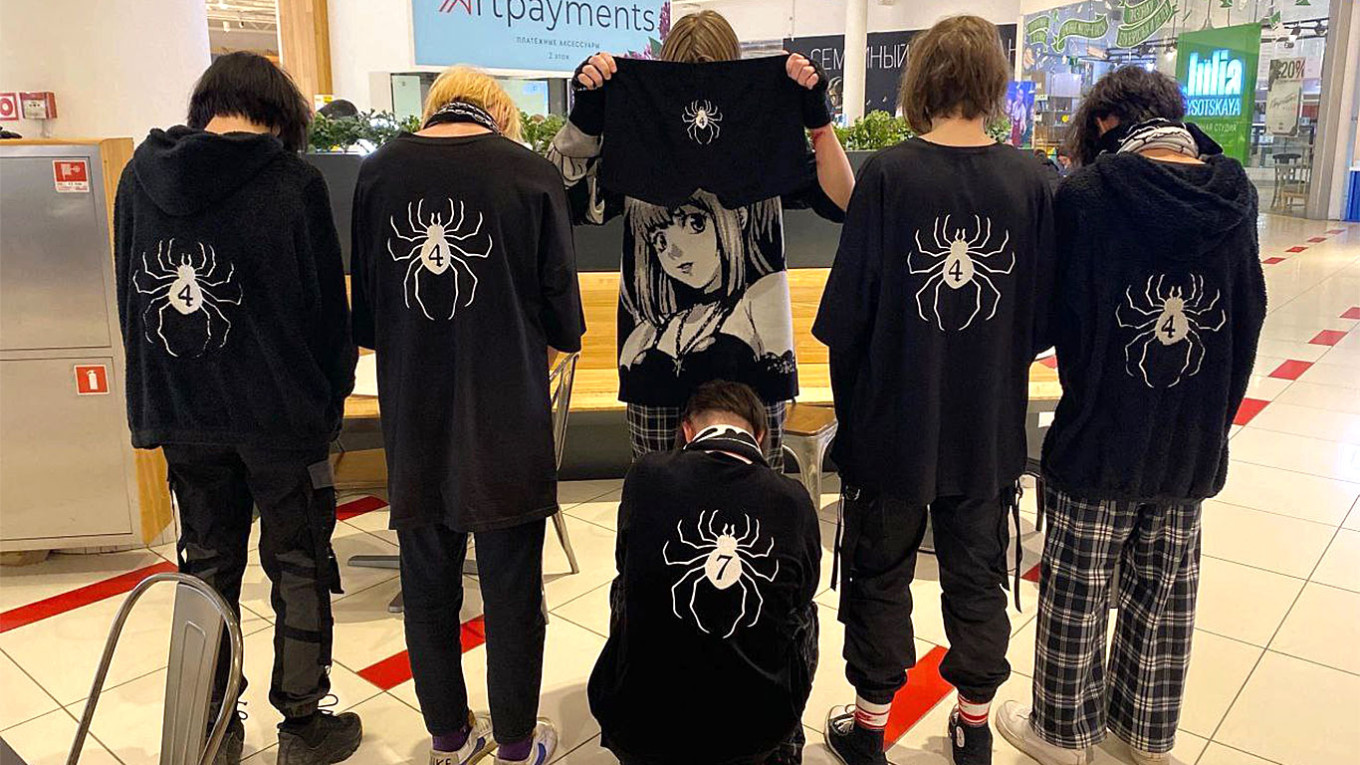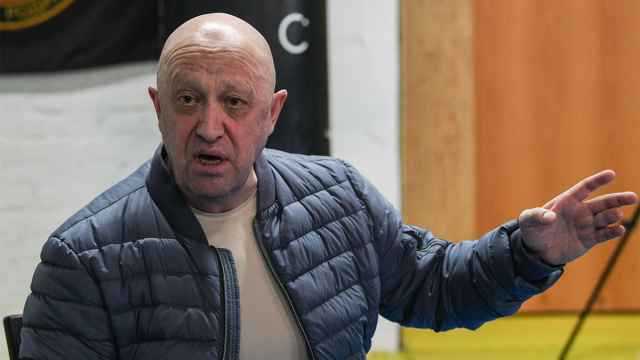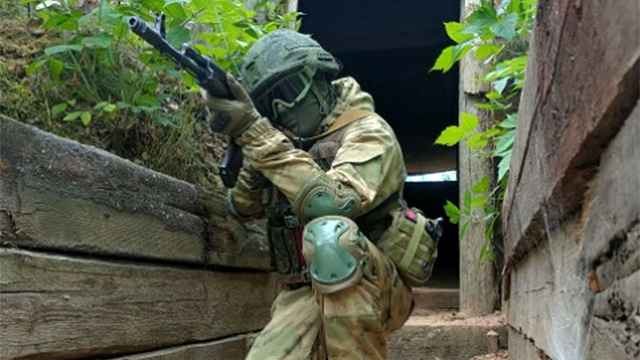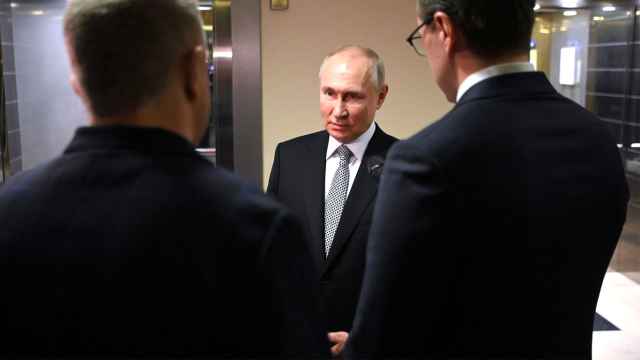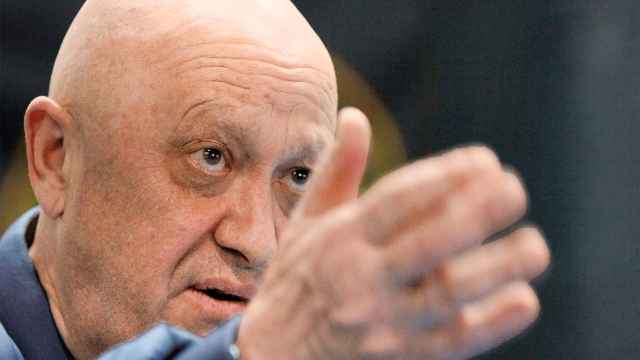The viral popularity of a newly emerged Russian subculture has in little more than a week caught the Kremlin’s eye and unsettled the authorities to such a degree that shopping malls in several major Russian cities have seen mass arrests of teenagers in the past few days.
In making the arrests, law enforcement officials are believed to have been looking for anyone identifying themself with an amorphous grouping known as PMC Ryodan, which top government officials have claimed is a Ukrainian project aimed at destabilizing Russia.
Here is what we know so far about PMC Ryodan and the reasons behind the mass arrests of its suspected teenage adherents:
What happened?
Early last week, a video showing a mass brawl between two groups of teens in Moscow’s Aviapark shopping mall took the Russian internet by storm. The fight allegedly broke out when one group of teenagers took issue with the unusual, matching attire of the other, who were all dressed in black, long-sleeve shirts featuring the outline of spider on the back and checkered pants — the trademark look of Ryodan.
Scuffles between the two groups took place in various parts of the mall. Moscow law enforcement subsequently opened a criminal case against those involved for hooliganism — charges that are punishable by up to seven years in prison — and arrested some 30 people allegedly connected to the incident, according to TASS.
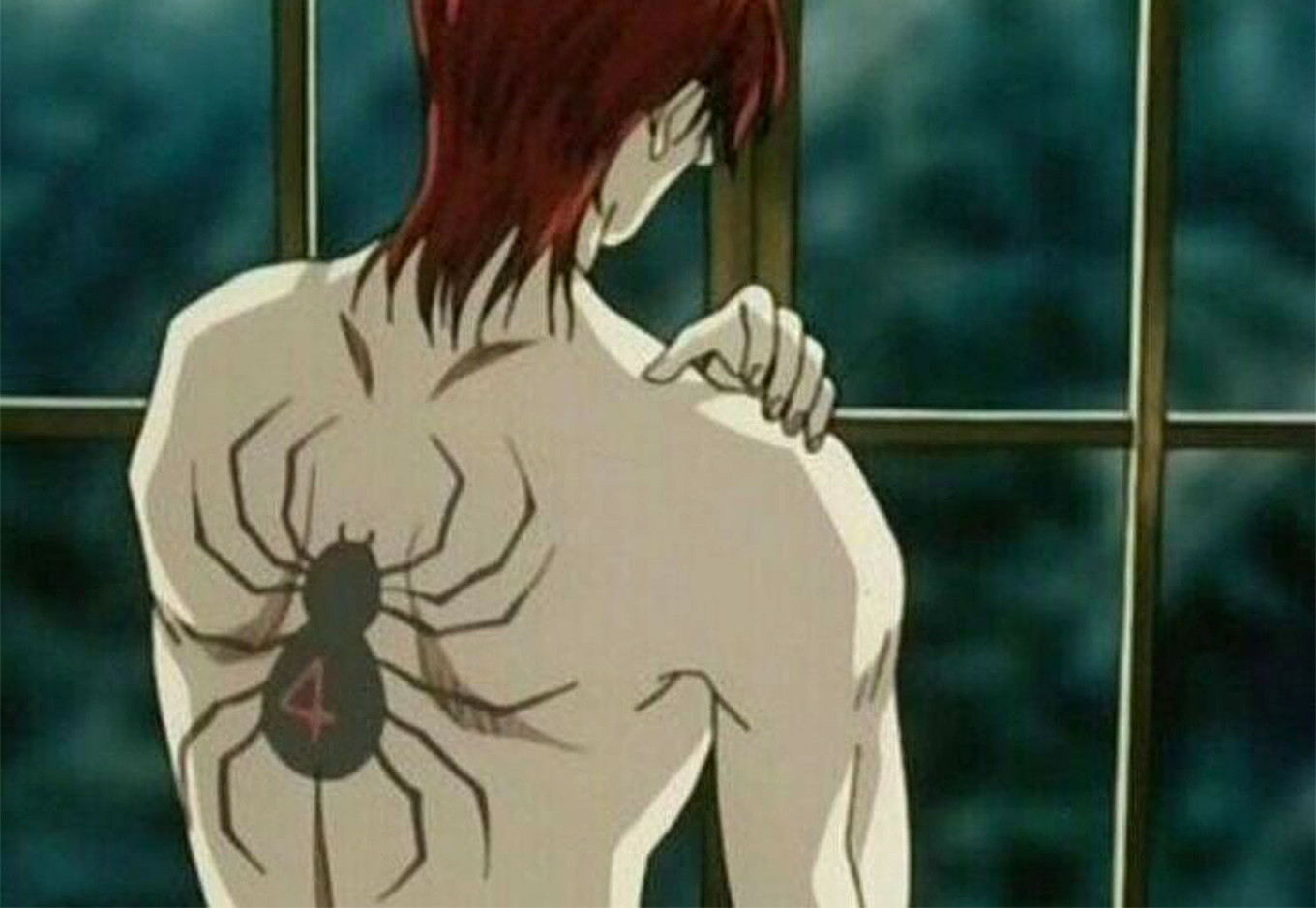
Though Russian police upped security in other major shopping malls following the incident, a similar mass brawl broke out in St.Petersburg’s Galeria shopping mall just days later. There, police arrested 131 people at the scene, and at least one person was badly injured, local news outlet Fontanka reported.
The two incidents were followed by a string of police raids on shopping malls in cities including Novosibirsk, Kazan, Rostov-on-Don and Krasnoyarsk. These raids resulted in the mass detention of teenagers, many of whom appear to have simply been in the wrong place at the wrong time.
Who are the teenagers?
The teen adherents of the Ryodan subculture are fairly easy to spot in their long, black hair, checkered pants and black hoodies emblazoned with a spider and the number four on the back. The subculture’s name is taken from the criminal group in the Japanese manga series “Hunter x Hunter,” a huge critical and commercial success that has become one of the best-selling manga series of all time.
The well-known Russian abbreviation “PMC” stands for “private military company” — the Russian euphemism for a mercenary group — and is believed to have been added to the group’s name ironically, likening a teen subculture to Russia’s most infamous PMC, the Wagner group, whose paramilitary units are currently engaged in fierce battles in eastern Ukraine.
However, adherents of PMC Ryodan interviewed by the U.S.-sponsored media outlet Sever.Realii stressed that the group’s followers did not subscribe to any particular ideology, let alone one propagating violence.
“We are a gathering of teenagers who go to concerts and take walks together. We have common interests and an ‘alternative’ appearance,” one PMC Ryodan follower who was identified as Yevgenia told the outlet.
“The brawl in Aviapark [shopping mall] was an accident. Our acquaintances were harassed by a young guy because of their appearance. We didn’t provoke anyone at all, we are just a regular group of teenagers,” she added.
What are Russian officials saying?
The mass arrest of uniformly clad teenagers across the country has inevitably been noticed by the upper echelons of the Russian government.
Kremlin spokesperson Dmitry Peskov on Tuesday endorsed the arrests of PMC Ryodan followers, labeling the group a “pseudo-subculture” that “brings no good for our youth.”
The head of the State Duma’s Security and Anti-Corruption Committee, Vasiliy Piskarev, said Tuesday that Russian parliamentarians intended to “closely monitor” the group’s activities, adding that they suspected PMC Ryodan may be directed by “unfriendly countries.”
What does PMC Ryodan have to do with Ukraine?
Yekaterina Mizulina, head of the Kremlin-aligned Free Internet League, a group that advocates for stricter rules on what can be said and done online, said that the violent actions allegedly committed by PMC Ryodan and the viral nature of the group were both intentional in its creation by Ukrainian officials aiming to destabilize Russia from within.
“But they made a mistake in this case because the trend has spilled over into their territory and kids are doing the same thing there,” Mizulina said in a video statement posted to her Telegram channel.
Ukrainian law enforcement has indeed already arrested over 200 teenagers with alleged links to PMC Ryodan in several Ukrainian cities, according to the RBC Ukraine news agency. Tellingly, the Ukrainian authorities have deemed the emergence of Ryodan in the country a Russian provocation aimed at destabilizing Ukraine.
As many as 200 alleged followers of PMC Ryodan were also arrested in the city of Gomel in southeastern Belarus on Tuesday, according to the Belarusian Investigative Committee, the first reported instance of the subculture emerging in Russia’s authoritarian ally.
A Message from The Moscow Times:
Dear readers,
We are facing unprecedented challenges. Russia's Prosecutor General's Office has designated The Moscow Times as an "undesirable" organization, criminalizing our work and putting our staff at risk of prosecution. This follows our earlier unjust labeling as a "foreign agent."
These actions are direct attempts to silence independent journalism in Russia. The authorities claim our work "discredits the decisions of the Russian leadership." We see things differently: we strive to provide accurate, unbiased reporting on Russia.
We, the journalists of The Moscow Times, refuse to be silenced. But to continue our work, we need your help.
Your support, no matter how small, makes a world of difference. If you can, please support us monthly starting from just $2. It's quick to set up, and every contribution makes a significant impact.
By supporting The Moscow Times, you're defending open, independent journalism in the face of repression. Thank you for standing with us.
Remind me later.


